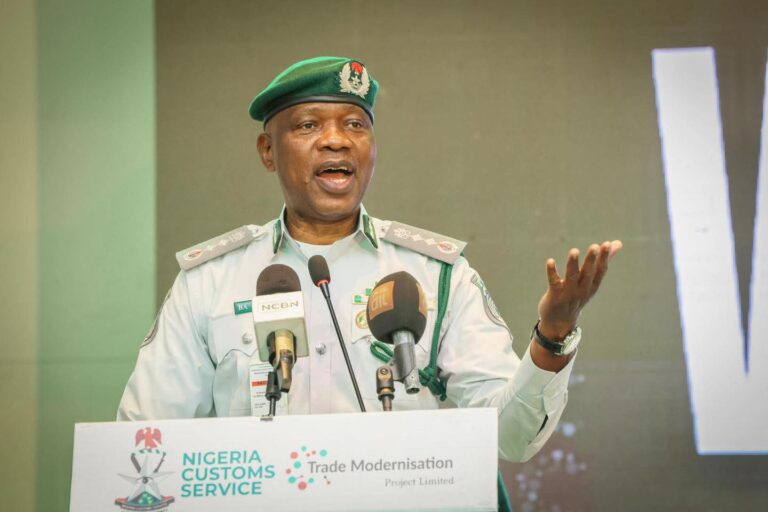The recent briefing by the Comptroller-General of Customs (CGC), Bashir Adewale Adeniyi, was not just an update on departmental efficiency; it was a clear declaration of Nigeria’s strategic intent to seize logistical command over the African Continental Free Trade Area (AfCFTA). The upcoming Customs Partnership for African Cooperation in Trade (C-PACT) Conference is being strategically positioned as the decisive operational anchor for continental commerce, ensuring Nigeria is the primary beneficiary of integrated African trade.
The Presidential Mandate: Trade as an Expansion Engine
President Bola Tinubu’s renewed mandate to the CGC is explicit: use trade as a major engine of economic expansion and reposition Nigeria as the “central hub for intra-African commerce.” This policy is a crucial shift from simply participating in AfCFTA to actively shaping its implementation.
To achieve this, the focus is placed on core operational targets: port decongestion, trade facilitation, and cross-border system modernization. Improving efficiency at Nigeria’s borders and ports is the necessary precursor to becoming the logistical gateway for the continent. As the CGC noted, the recent surge in export volumes—up by over 30 percent in the last two years—creates a “historic window” to redirect Nigerian trade towards African markets. This drive is a calculated geopolitical move to dominate regional supply chains.
C-PACT: Forcing the Institutional Pivot
The C-PACT Summit (17–19 November 2025 in Abuja) addresses the single most significant historical failure point in African regional trade: the exclusion of customs administrations from the policy-making table.
The CGC rightly insists that “sustainable integration cannot happen without Customs at the centre.” Tariffs are easy to agree upon; the real challenge lies in the complex, day-to-day enforcement of Rules of Origin and the application of preferences. When these mechanisms fail, regional agreements collapse into bureaucracy and delays.
By hosting C-PACT, Nigeria is using its influence to:
- Correct Past Gaps: Directly engaging over 30 Customs administrations to create a unified, operational framework.
- Enforce Legitimacy: Ensuring goods “genuinely enjoy the benefits of the agreement” by pushing for rigorous, harmonized enforcement standards.
- Prioritize the Private Sector: The focus on direct conversations with private-sector operators on the first day is smart. It forces Customs administrations to confront the real, persistent non-tariff barriers that impede cross-border movement, transforming policy into pragmatic action.
Global Validation of Nigeria’s Leadership
The significance of hosting the Secretary-General of the World Customs Organisation (WCO), Ian Sanders, cannot be overstated. His presence validates Nigeria’s ambition on a global stage, signaling to international partners that Nigeria is the designated organizational anchor for customs diplomacy and operational standards in Africa.
Ultimately, the C-PACT Conference is Nigeria’s institutional lever to transition the AfCFTA from a diplomatic aspiration into a functioning, enforced trade zone. It is a strategic move to secure Nigeria’s economic future by controlling the rules of engagement for African commerce.

